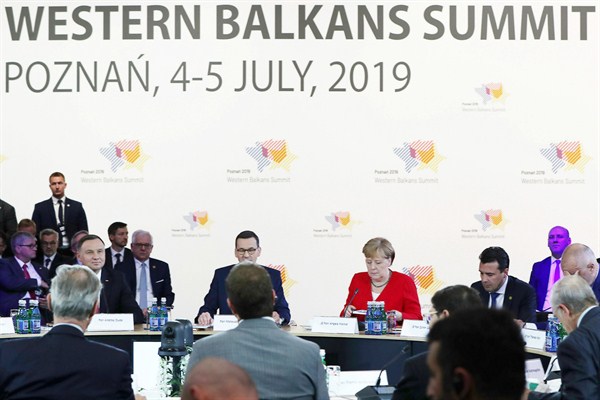French President Emmanuel Macron left a recent EU leaders’ summit in Brussels frustrated after his fellow heads of state failed to come to an agreement on who should be appointed to the top posts in the European Commission. Following the unsuccessful all-night negotiations, Macron took a swipe at his colleagues by voicing his opposition to further enlargement of the European Union. “I am more than skeptical toward those who say that the future of Europe lies in further enlargement, when we can’t find agreement between 28 nations,” Macron told reporters. “I will refuse all forms of enlargement before deep reform to the way we function institutionally.”
Prospective enlargement has moved back onto the agenda as EU leaders contemplate whether to open accession negotiations with North Macedonia and Albania after the European Commission gave its approval last year. But Macron has been a consistent critic of admitting new members. At a EU-Balkans summit in Bulgaria in May 2018, he said that enlargement has “weakened Europe every time” it has been undertaken.
Macron’s stance reflects a much broader fatigue over enlargement across the continent, which is bad news for the six western Balkan states—Serbia, Montenegro, North Macedonia, Albania, Bosnia and Herzegovina, and Kosovo—that harbor hopes of one day joining the EU. Two of them, Serbia and Montenegro, are already engaged in accession talks, which began in 2014 and 2012 respectively, while North Macedonia and Albania hope to be afforded that privilege later this year.

